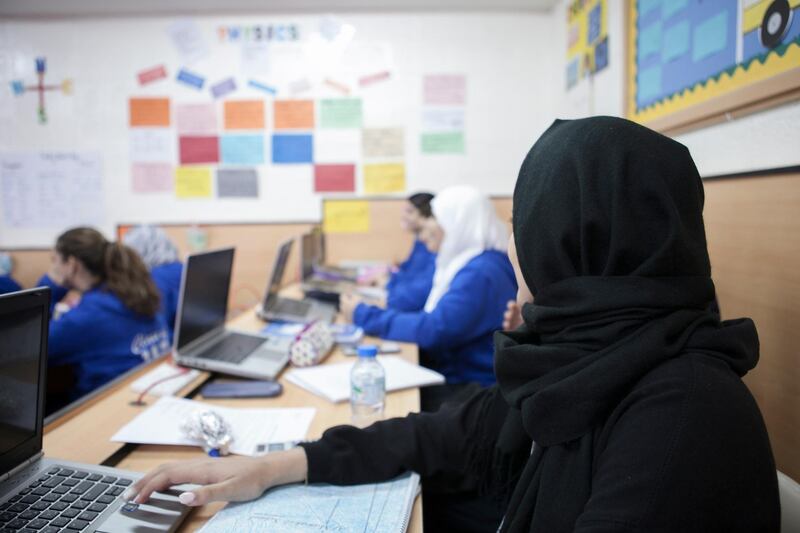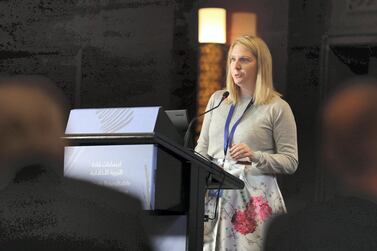Thousands of pupils in the UAE will sit an exam this year to see how well the new moral education programme is working.
The Moral Education Standardised Assessment will be piloted in 70 public and private schools in the UAE.
About 10,000 pupils, in grades three, five, seven and nine, will take the 45-minute computer-based exam that will assess the children’s situational judgment to see how they react in different scenarios.
But rather than measuring individual performance, the 45-minute test, that will be tailored for each grade, will evaluate the efficacy of the moral education programme — meaning children are not obliged to study.
At present, there are more than one million pupils receiving moral education in UAE schools. The class was made compulsory to UAE schools by the education affairs office at Abu Dhabi’s Crown Prince Court in September 2017.
This month, officials met with head teachers across Dubai and Abu Dhabi to address concerns over the wide-ranging and at times complex nature of the subject.
Moral education covers everything from civic sense and understanding Islamic culture to financial literacy and money management, which Nargish Khambhatta, principal of Gems Modern Academy in Dubai, the city's top-rated Indian curriculum school, told the event was "heavy and dry" at times.
Officials said the test will help to measure how effective the new subject is.
"[The test] uses the latest advancements in psychometric testing and analysis to measure pupils' understanding of the material and the curriculum's effectiveness in changing their perceptions and behaviour," said Mohammed Al Neaimi, director of the education affairs office at the Abu Dhabi Crown Prince's Court.
He said it would be difficult to quantify the effectiveness of the curriculum because it required measuring the good character and values of pupils.
Saadia Abkari, director of ministry subjects and languages at Victoria International School of Sharjah, agreed but said she didn’t think children should be tested in moral education at all.
"We should look at it as part of the well-being because the subject has more to do with values rather than knowledge,” she said.
"The evaluation framework says moral education a not a pass and fail subject, but all the schools have to report it. We have been given different books and we teach these.”
Prior to Wednesday’s announcement, schools did not test their pupils in the subject. Ms Abkari said that, instead, her school approached the course from a creative, project-based perspective.
"At our school we hold discussions, and we are going to introduce a project. We focus on critical thinking and creativity”.
She said pupils are encouraged to work on community-based projects.
"Moral education is an appreciation of how this child is a positive member of the school.
“For the teacher, the focus of moral education should be on how to ensure that the pupil is a creative and critical thinker and a good member of the community,” she said.
The announcement about the new exam was made at the Middle East and Africa Association of Test Publishers conference in Abu Dhabi on Tuesday.
The assessment was developed with the international testing organisation, ACT Inc, and tailored for the UAE.
Ahmed Fikri, from the Office of Strategic Affairs for the Crown Prince’s Court, said the results will help to "improve and strengthen the delivery of Moral Education in schools".
Moral Education is built upon four main pillars that include character and morality, individual and community, civic studies and cultural studies.
Pupils in public and private schools must receive 45 minutes of moral education every week.
It was first piloted in 2016 and fully rolled out across the UAE, covering grades one to nine, in September 2017 and extended to Grades 10 to 12 in September 2018.








